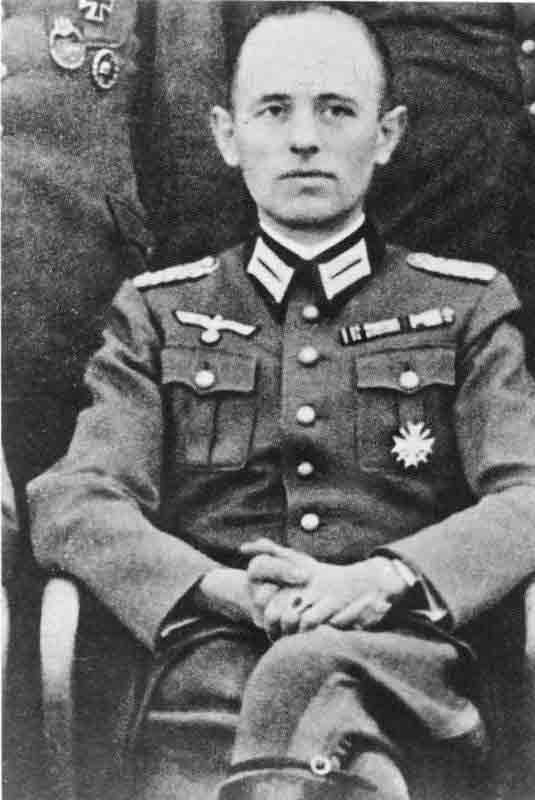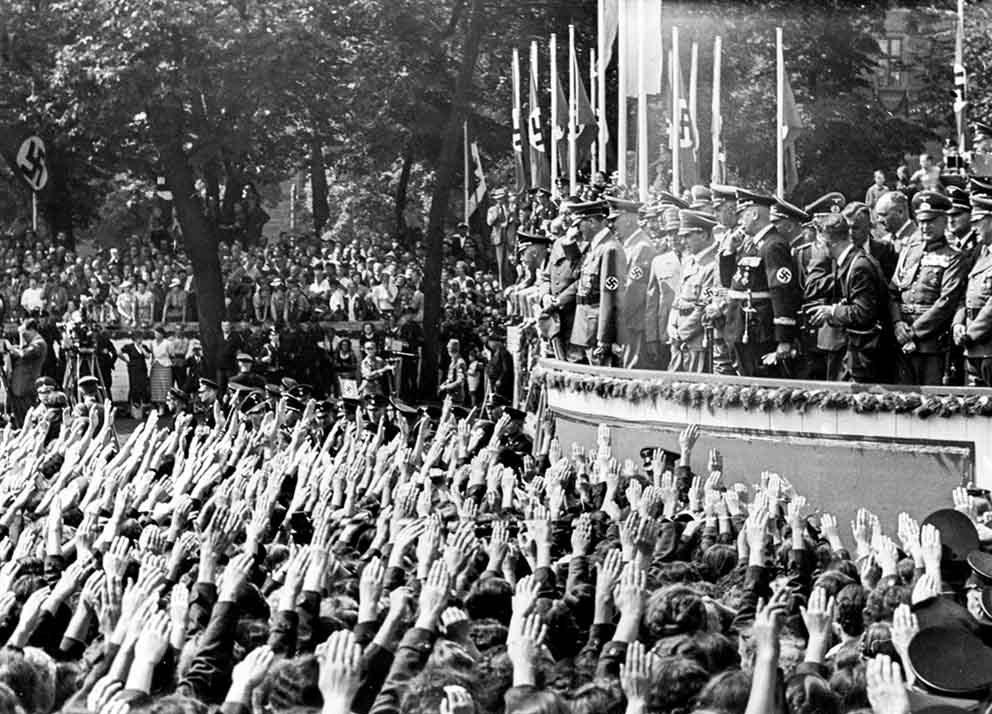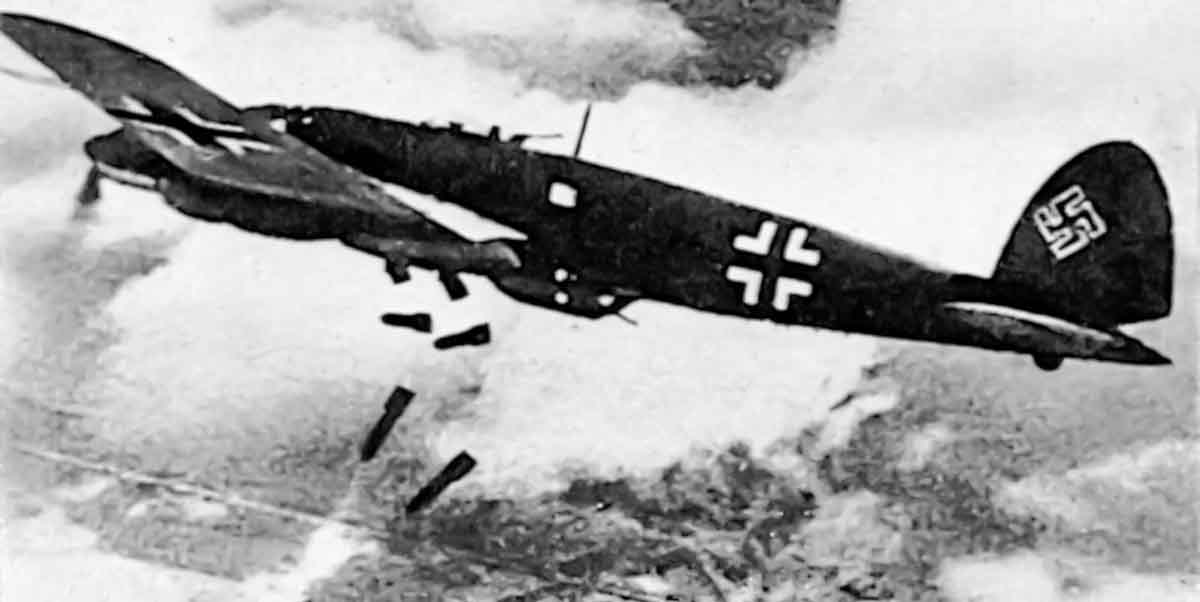The conspiracy allows one to lead one's own life beyond the official reality defined by the "occupier" and covers all branches of state and national life, from the illegal state apparatus to the inconspicuous, illegal social assistance. (...)
(...) first and foremost, the conspiracy is a matter for the entire nation [of Poland - ed. author]. We do not have such a phenomenon in our nation [German - ed. author]. The ability to conspiracy is deeply rooted in the national character of Poles and learned in the process of historical development. Therefore, in 1939, it did not have to be learned, let alone ordered. It was just obvious. The conspiracy has become the means that makes the resistance movement a national affair. Each Pole by himself becomes a supporting, carrying element of the whole surrounding him.
On the pan-European map of resistance, it is the Polish resistance movement that is leading and exemplary in many areas.
Throughout history, the Polish nation has provided evidence that, even deprived of its statehood and its own military protection, it is capable of maintaining its vitality for many generations.
The Polish defeat in 1939 was only apparently total, because the most important element in the life of nations, the will to have one's own national state, did not break down.
During the disaster of state and military structures, Polish intelligence suffered relatively the least. (….) A large, well-trained and extremely gifted network of agents entwines (and still embraces) the whole of Europe. (...)
There is probably no nation or country in Europe or the Middle East where Polish intelligence would not maintain a more or less extensive network of agents.
The hitherto German counterintelligence activities prove that Polish intelligence cannot be eliminated by using only military and police means. It is true that we managed to hit it many times, but failed to break it. No matter where and how we hit, it quickly returned to itss previous form, learning from its failures.
The above quotes are not taken from a paean to Poland and Poles written by a Polish author or some polonophile. These are excerpts from a secret report by Major General Reinhard Gehlen, a longtime chief of German military intelligence in the East, prepared in April 1945 for the then Minister of the Interior of the Third Reich, head of the SS and Gestapo, Heinrich Himmler.
The report describing the genesis, structure and functioning of the Polish underground state in the German-occupied Polish territory was one of the elements of German preparations for the creation of underground state structures, similar to the Polish underground state, in the event of the anticipated defeat of Germany in World War II.

Colonel Reinhard Gehlen ca. 1943 (Source: Wikipedia)
Reinhard Gehlen was born on April 3, 1902 in Erfurt and died on June 8, 1979 in Berg (Bavaria). In 1918 he joined the German army (then Reichswehr). Thanks to a marriage concluded in 1931 with a distant relative of the general serving at Frederick the Great, he was noticed early on, and his military career gained momentum.
In 1935 he graduated from the Military Academy. In the same year, the Reichswehr was dissolved and the Wehrmacht was established, and Reinhard Gehlen became an officer of the German General Staff. In October 1940, he became the head of the eastern section of the operational department of the army staff. Due to his duties, he was the co-author of the Barbarossa plan - the German attack on the USSR in 1941.
In April 1942, in the rank of lieutenant colonel, he took command of the intelligence of the land forces east (Abteilung Fremde Heere Ost - FHO). After the disclosure of serious errors in the assessment of the situation and intentions of the Red Army during the fighting near Moscow at the turn of 1941-1942, Gehlen rebuilt the method of collecting and analyzing information on Soviet Russia, the Red Army, its equipment, combat capabilities and plans in such a way that For the rest of the service, his superiors treated his reports as a reliable source of information.
The materials prepared by Gehlen's cells were discussed in the presence of Adolf Hitler himself, and this later became the reason for the Fuhrer's dislike of Gehlen. Hitler expected optimism and boundless faith in Germany's final victory, while Gehlen's reports were "unbearably honest." Gehlen gave pure facts about the enemy, and only colored a bit by writing about the state of morale and successes of the German troops.
Reinhard Gehlen, among others he led the action of apprehending the trusted commander of Joseph Stalin, the heroic defender of Moscow in 1941, Lieutenant General of the Red Army, Andrei Vlasov, whom he later persuaded to move to the German side and take command of the over 100,000 Russian Liberation Army (ROA) fighting on the German side.
Gehlen was a hardworking, prudent and, above all, very well-informed man. Three weeks before the planned attack on Hitler by Colonel Claus von Stauffenberg (July 20, 1944), Gehlen fell ill with sepsis and stayed in the hospital until August 25, 1944. It would be naive to think that it was a coincidence, the more so as he knew most of the conspirators. Apparently, from the very beginning he did not bode a chance of success for the plot, because the FHO cell led by Gelen was the only one in the entire General Staff in which not a single officer involved in the von Stauffenberg plot was discovered.
In December 1944, Reinhard Gehlen was promoted to the rank of major general. Unfortunately, the closer the end of the war was to the end of the war, the more enthusiasm and optimism the Führer expected from his subordinates, and the reports of Fremde Heere Ost, informing about the facts, were far from optimistic.
Apparently, on the orders of Adolf Hitler himself, issued after a misjudgment in terms of predicting the behavior of the Red Army, on April 9, 1945, Major General Reinhard Gehlen was dismissed from the post of intelligence commander of the East Land Forces (Fremde Heere Ost - FHO).
After leaving the staff, Gehlen should take command of the division, which at the turn of April and May 1945 gave little chance of surviving the rapidly approaching end of the war. Knowing that the command had a general need for contingency plans in the event of an unfavorable end to the war for Germany, Reinhard Gehlen, through Walter Schellenberg (head of foreign intelligence), proposed Heinrich Himmler to prepare a study on the Polish resistance, which was to help organize the German underground in case of losing the war.
The proposal was accepted, the report was prepared in 6 copies, but Himmler thought it was too dangerous. Himmler stated that he did not want to be labeled "the first defeatist of the Third Reich" and the Gehlen report was not approved for disclosure. Himmler's fears are no longer surprising today. Himmler was a criminal, but he was certainly no fool. He had a complete picture of the situation of the Third Reich and had long taken steps to establish contact with the British and Americans in order to cooperate and fight against Russia.
At that time, Himmler's proposal, due to the revealed crimes of the SS and Gestapo, was unacceptable to the Allies, but who knows what would happen if the war were to last a year or two longer.
At the turn of March and April 1945, Reinhard Gehlen, together with a group of about 40 associates, moved to a safe place, to the Alpine Bad Reihenhall near Salzburg. He prudently took a copy of the FHO archive with him in fifty metal boxes. It was all the knowledge about the German intelligence network in Soviet Russia. After several weeks of hiding in the mountains, on May 22, 1945, in the new military and political situation, Gehlen reported to the Americans with a ready offer of cooperation.
The professionalism of Major General Reinhard Gehlen was unquestionable. He was not burdened with war crimes charges, and the weight of the materials provided and the sincere German declaration of collaboration meant that he was entrusted with the organization of a German intelligence agency closely cooperating with the Americans. Until 1956, the agency officially functioned as the Gehlen Organization (Gehlen Organization), and in 1956 it was transformed into the Federal Intelligence Service (Bundesnachrichtendienst). Reinhard Gehlen headed it until 1968.
Let us now give voice to the head of the German Military Intelligence East.
The Location of Poland between Germany and Russia:
The ethnographic situation of the Polish nation, the characteristic features of which we unmistakably recognize in the Polish resistance movement, is marked by the fact that for centuries it has been in the zone of collision of German and Russian interests, so it always had to defend itself against attacks from both sides. The Pole defends his independence from the Russians, because they treat it as the western branch of the Slavic region, which is supposed to act as the vanguard of Russian territorial claims and the transmitter of Slavic influence in old Europe. Soviet Russia today is no exception. On the contrary, it adds new ones to the old pan-Slavic slogans: revolutionary-Bolshevik.
(...) The attitude of a Pole towards the Germans is also based on the conviction that that he must defend his settlements and life in the area of the Vistula River and himself as a nation against them. At the same time, he considers the Germans to be a greater existential threat than the Russians.
Lack of political collaboration among Poles:
It is significant that the leadership of the Polish nation, highly Nordic and largely of German blood, stubbornly rejected the agreements. In this context, it should also be noted that very few polonized Germans (in Warsaw, polonization of the recent date, in Krakow earlier) found their way back to the nation they came from.
(...) there was a growing conviction that Germany wanted to brutally destroy the Polish nation, and all the proposals for an agreement with which the German side came out were either dishonest or were the result of German defeats on the fronts. In fact, there was no known Polish personage who would win over the Polish nation for the German reconstruction of Europe. The Poles were deeply satisfied that "no Quisling was among them".
Organization of the Polish resistance movement:
It is often forgotten that every action of the Polish resistance movement, even if it seems to us that it is an isolated enterprise, without any background, is based on a serious intention, overriding will and a deliberate plan. In this way, areas where active combat operations are carried out are adjacent to areas that the resistance uses for its masked preparations, as a result of which we get the wrong impression that these are peaceful or already pacified areas. But only the joint treatment of both of these areas shows how punctually organized and consistently commanded the entire resistance movement is.
Polish government in exile, underground administration in the country:
As a result of the military defeat, the entire Polish government found itself in exile. (…) The government was represented in the country by a delegate to the country with the national council of ministers at his side. (…) Thanks to the tireless laborious work, the clerical apparatus was built in a clandestine form, which covered all spheres of state life (up to social welfare and education). The goal was to have a flawlessly functioning state apparatus in hand from the first day after its appearance, both in terms of staff and program. As a result, the London government had - apart from the armed forces - a kind of illegal "civilian army" at its disposal, the importance of which cannot be overestimated. (...) Illegal domestic administration covered the entire territory of the former Polish state.
Polish civil and military resistance dangerous for Germany:
Through the merging of various forms of intelligence, party and administrative activity in one armed movement, the power of Polish resistance reaches its true depth and becomes truly dangerous. In such a resistance movement, the civilian and military sectors come together to generate the total commitment of members, where the courage and willingness to suffer the highest sacrifice is not just an empty phrase, but a daily law of life. We must therefore be aware that we are not dealing here with some harmless game, but with a deadly serious belief of a nation of twenty million - whatever it may be - which recognized that armed resistance to Germany is its ultima ratio.
Underground Polish Press:
The real flood of leaflets, magazines and newspapers turned out to be a particularly fierce weapon of the Polish side in the propaganda fight for the nation. The Pole considers them his press and trusts them blindly. On the other hand, he rejects press products published by the German side in Polish, because he treats them as foreign, which were allegedly created only to lie to Poles. (...) There are over 200 different press products. The elimination of this press through the liquidation of the printing house and the confiscation of already finished prints turned out to be impossible, especially as more devices are immediately sent from abroad to replace any losses. (...) The illegal press was and is probably one of the strongest Polish weapons against any German attempt to reach an agreement. The Pole is constantly incited by her to resistance.
Warsaw Uprising August 1 - October 2, 1944:
The Warsaw Uprising was triggered by the pressure of events that were not foreseen in the planning phase of the general uprising or in the period of preparations for it. The development of the military situation in the East surprised the Polish command, as a result of which it was unable to start the planned and largely prepared uprising at a time when the Red Army was still far from the former Polish state border. The seemingly unstoppable march of the Red Army to Warsaw caused a wave of national emotions on an unprecedented scale in the surprised Polish camp. It was feared that the Soviets in Warsaw would fully apply the practice, already established in other parts of Poland, of bypassing and not recognizing the illegal Polish military and civilian authorities, and that by capturing the Polish capital, The Soviets would achieve serious moral success. On the German side, they feared repression, further deportations to the Reich for work and mass calls to work on the construction of fortifications, which would significantly weaken the ranks of the Home Army. It was believed that the Wehrmacht would give up Warsaw without a fight, and the British would help by supplying weapons and bombing German positions and sending Polish units stationed abroad to fight. With such assumptions, success seemed certain. Its effect was supposed to be threefold:
• First: the most important leaders of the illegal leadership of the state and the army would take the Soviets in the role of host in his own capital,
• secondly, Prime Minister Mikolajczyk would receive at the end of a real asset policy to use during difficult negotiations in Moscow
• Third: the whole world demonstrated that unshakable Polish will to fight.
In the first days, the insurgents managed to occupy most of the city, encircle many scattered German outposts and seized virtually intact important communication, supply and administrative facilities. They managed to secure, at least in the initial phase, water, electricity and gas supplies to the city. Only after fierce street fights for every house in which air force and tanks were used, the German Wehrmacht managed to free German outposts from the encirclement, clear the most important transit routes and reduce the actions of the insurgents to three areas: Śródmieście (including the Old Town), Mokotów, and Żoliborz. The prospects for an independent "liberation" of Warsaw were becoming increasingly distant.
According to the accounts of eyewitnesses, in the first days of the uprising, unbridled hatred celebrated the real orgies organized by the street mob, abusing the captured Germans (especially the Volksdeutsche) and the Ukrainians. Later, however, the treatment of especially the captured Wehrmacht representatives was, given the circumstances, correct.
Poland's naive alliance with England:
The lack of any English help [ in September 1939 - author's note ] combined with the knowledge that the British air force did not take any action against the Reich, which after the defeat could no longer be concealed, naturally caused strong disappointment in wide circles of the nation. However, no fundamental conclusions were drawn from this situation. Casual explanations by the English made the disappointment forgotten.
Through the Anglo-Soviet alliance, Poland became the subject of a game by Allied diplomacy. However, the London government in exile continued to believe that it could act as an equal ally and for this reason fought for equal treatment.
With the strengthening of Soviet Russia and the Red Army's offensive to the West, the true attitude of England towards Poland became apparent. It became unambiguous when, at the beginning of 1944, the Red Army crossed the former border of the Polish state and began occupying the Polish territory. At this point, England should fulfill its treaty obligation and help nationalist Poles in building their own, treaty-guaranteed, independent state, especially since the Russians did not make any efforts in this direction. However, exactly the opposite happened. Anglo-Americans began to sell Polish interests to the Russians bit by bit (compare especially Mikołajczyk's fight in Moscow and London).
Anglo-Americans were and are interested only in pursuing their own interests, and not in the needs of the Polish nation. For this reason, they tried to keep the Polish people sold to the Soviets in the dark for as long as possible, because the help they receive from Polish intelligence and Polish forces in France [ 1st Armored Division of General Stanisław Maczek, victory at Falaise, liberation of Ghent, Breda - ed. . author ] and Italy [ II Polish Corps of General Władysław Anders, conquest of Monte Cassino, liberation of Ancona, Bologna ], is worth more than the money and supplies given to them.
It is difficult to present the entire report of Major General Reinhard Gehlen in one article, in particular, because it comprises more than two hundred pages.
On the one hand, the level of knowledge that the German military intelligence had about the Polish underground is surprising, and on the other hand, there are also significant areas of ignorance, which seem to result from the lack of sharing information by various German services. For example: the military intelligence did not know at all about the arrest by the Gestapo, the imprisonment and then the murdering of the first commander of the Home Army, General Stefan Rowecki, pseudonym "Grot" in the German concentration camp Sachsenhausen.
The knowledge of the head of the East Military Intelligence on Poland, the Polish underground state and Polish affairs in the international arena, emanating from the report, was truly impressive. The appendices to the report include, among others, map of Poland drawn up in March 1945, with the borders that are in effect today.
I am of the opinion that for the sake of the Brightest Republic [Poland, - ed. translator], the secret report of Major General Reinhard Gehlen on the Polish resistance should be required reading at universities educating Polish diplomats, the military, and politicians.
Today, having the knowledge of the practice of the functioning of the European Union, the history of the construction of the Nord Stream 1 and 2 gas pipelines, and the course and the ending of the war in Afghanistan, Polish politicians should abandon their naïve faith in seemingly disinterested and morally righteous allies, in order to realistically assess the maximum benefits that can be obtained at the moment for Poland. The best guarantee of Poland's security is the conviction that if we do not help ourselves, no one will help us, and to consciously prepare for theoretically possible scenarios.
Translation from Polish by Andrew Woźniewicz.






